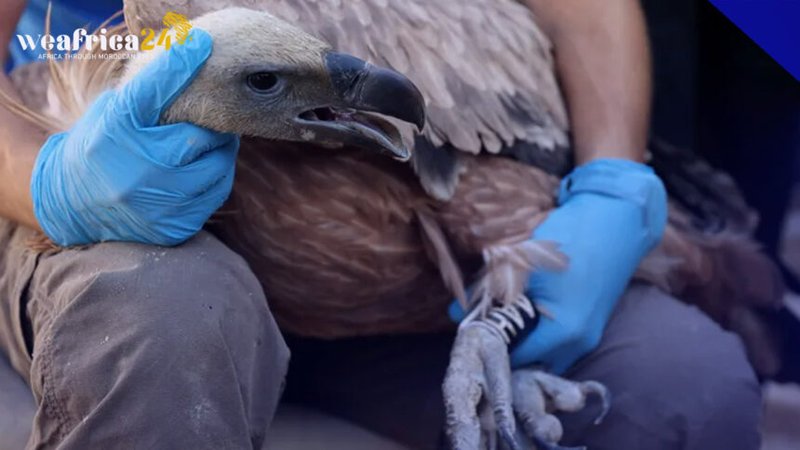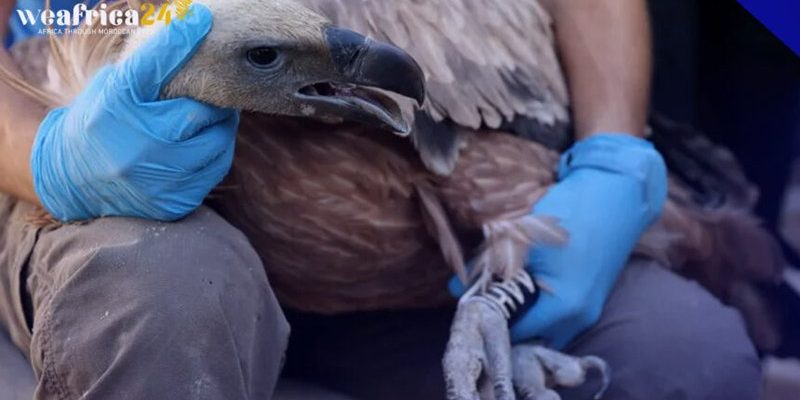
Understanding why vultures face such serious threats can help us realize how important these conservation efforts are. Think of it like a domino effect. When one species declines, it can impact others, leading to a chain reaction that disrupts the balance of nature. By spotlighting various initiatives working to protect vultures, we can appreciate how interconnected our world really is.
Why Are Vultures Endangered?
Vultures are facing a tough time, and understanding why is key to their conservation. For starters, habitat loss is a major factor. As humans expand into wild areas for agriculture and urban development, vultures lose their natural homes. Imagine if your neighborhood suddenly got bulldozed to make way for a shopping mall; you’d be pretty lost, right? Vultures feel the same way when their habitats disappear.
Another significant challenge is poisoning. Sadly, some farmers and ranchers use poison to eliminate predators that threaten livestock. When vultures eat the remains of these poisoned animals, they too can become victims. This not only reduces vulture numbers but also creates a dangerous cycle that could lead to more carcasses remaining in the environment, which can definitely have negative impacts on public health.
The Role of Vultures in the Ecosystem
So, why should we care about vultures? These birds are crucial for maintaining a healthy ecosystem. They help prevent the spread of disease by consuming dead animals that could otherwise harbor bacteria and viruses. Think of them as nature’s sanitation workers, removing waste and helping to keep our environment clean. Without vultures, these remains could attract other scavengers, leading to increased disease outbreaks.
If you’ve ever been on a hike and noticed a vulture soaring overhead, it’s likely doing its part to keep that area free of decay. Their keen eyesight allows them to spot carrion from great heights, making them incredibly efficient at their job. It’s a bit like having a built-in waste management system in nature—one that we can’t afford to lose.
Current Conservation Initiatives
Various organizations and initiatives work tirelessly to protect vultures worldwide. One notable effort is the Vulture Safe Zone project. This program creates specific areas where vultures can thrive without the threat of poisoning or habitat destruction. These zones are carefully monitored and managed to ensure that vultures have a safe place to feed and breed.
Another essential initiative is the Vulture Recovery Plan, which focuses on breeding programs for critically endangered species. These programs often involve capturing birds in the wild, breeding them in controlled environments, and then reintroducing them to their habitats. It’s a bit like giving vultures a second chance at life, which they desperately need.
Community Involvement and Education
One of the most powerful tools in vulture conservation is community involvement. Local people can play a significant role in protecting these birds. Educational programs often aim to raise awareness about the importance of vultures and the dangers they face. When communities understand why vultures matter, they’re more likely to take action to protect them.
For instance, some initiatives teach farmers about the benefits of vultures, encouraging them to avoid using harmful poisons. This creates a win-win situation: farmers can keep their livestock safe without harming these essential birds. It’s all about building a relationship between people and nature, ensuring both can thrive together.
Technological Innovations in Conservation
Technology is also making waves in vulture conservation. Tracking devices are now used to monitor vulture populations and understand their behaviors better. By fitting vultures with GPS collars, researchers can analyze their feeding patterns and breeding grounds. This information is invaluable for creating effective conservation strategies.
Drones, too, are playing a role. They can be deployed to survey remote areas and gather data without disturbing the birds. Imagine getting a bird’s-eye view of the habitat—quite literally! This tech allows conservationists to monitor places that are hard to reach from the ground, increasing our understanding of vulture populations.
Volunteer Opportunities
If you love wildlife, why not get involved in vulture conservation? Many organizations welcome volunteers to help with tracking, monitoring, and educational outreach. Volunteering can be a rewarding way to contribute to a cause you care about while also learning more about these incredible birds. Plus, it’s a fantastic opportunity to connect with like-minded people who share your passion for nature.
Whether you’re organizing local awareness campaigns or helping track vulture movements, every little bit counts in the fight to save these magnificent birds. It can feel empowering to know you’re making a difference, even if it’s in small ways.
Supporting Policies and Legislation
Conservation efforts also rely on supportive policies and legislation. Governments play a crucial role in protecting vultures by implementing laws that safeguard their habitats and limit harmful practices. Conservationists lobby for stronger protections, such as banning the use of poisons in agriculture and promoting sustainable land practices.
Ultimately, the success of these efforts hinges on public and political will. When people advocate for policies that prioritize wildlife and the environment, it creates a ripple effect. Laws that protect vultures can lead to healthier ecosystems, benefiting not just the birds but also the communities that rely on those ecosystems for their livelihoods.
The Road Ahead for Vulture Conservation
The future of vultures might seem uncertain, but there’s hope thanks to ongoing conservation efforts. With the combination of community involvement, technology, supportive policies, and dedicated organizations, we can improve the circumstances for these magnificent birds. Every action counts, no matter how small, and each step we take can lead to a healthier environment for both vultures and humans alike.
In conclusion, vultures are vital players in our ecosystems, and their conservation is crucial for maintaining balance in nature. By supporting various initiatives and spreading awareness, we can ensure that these incredible birds continue to soar in our skies for generations to come. Protecting vultures isn’t just about saving one species; it’s about preserving the health of our entire planet. Let’s rally together and make a difference!

